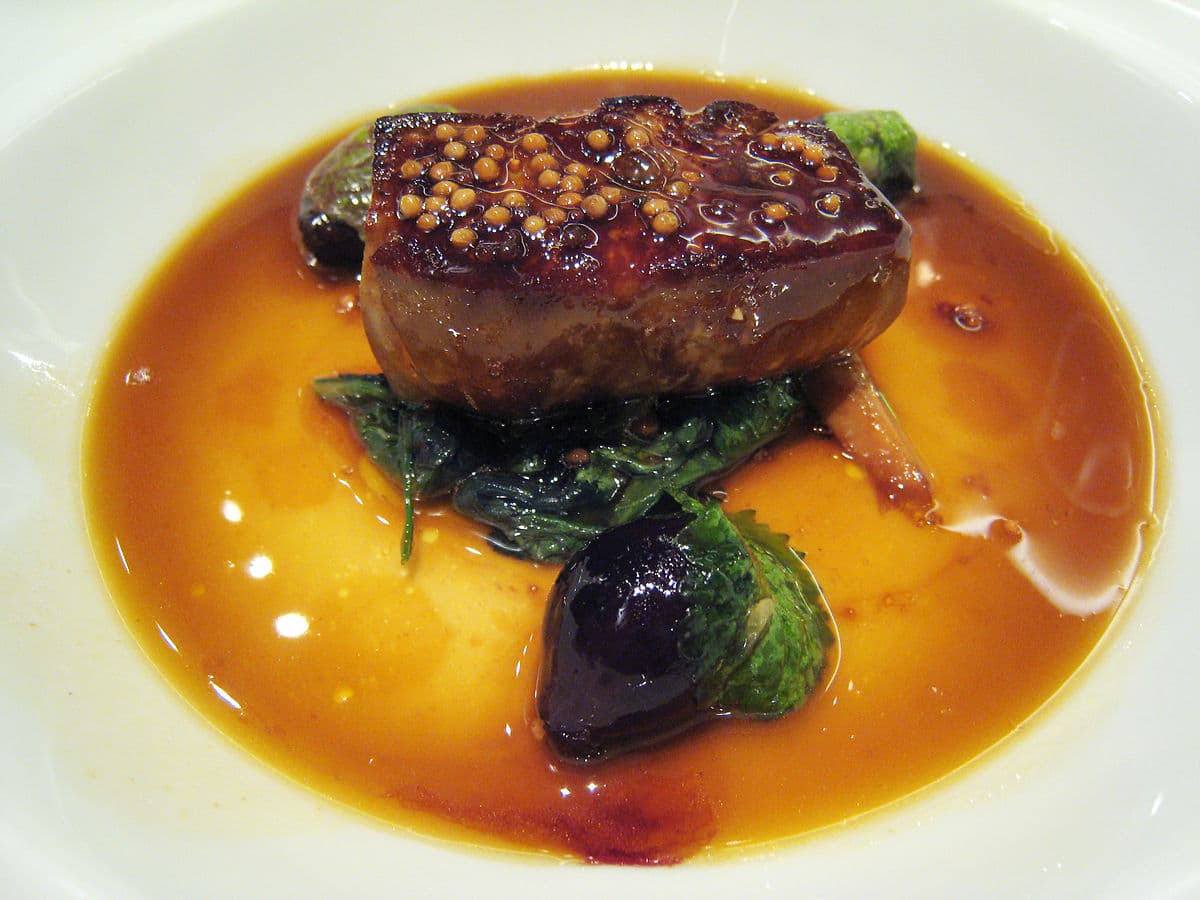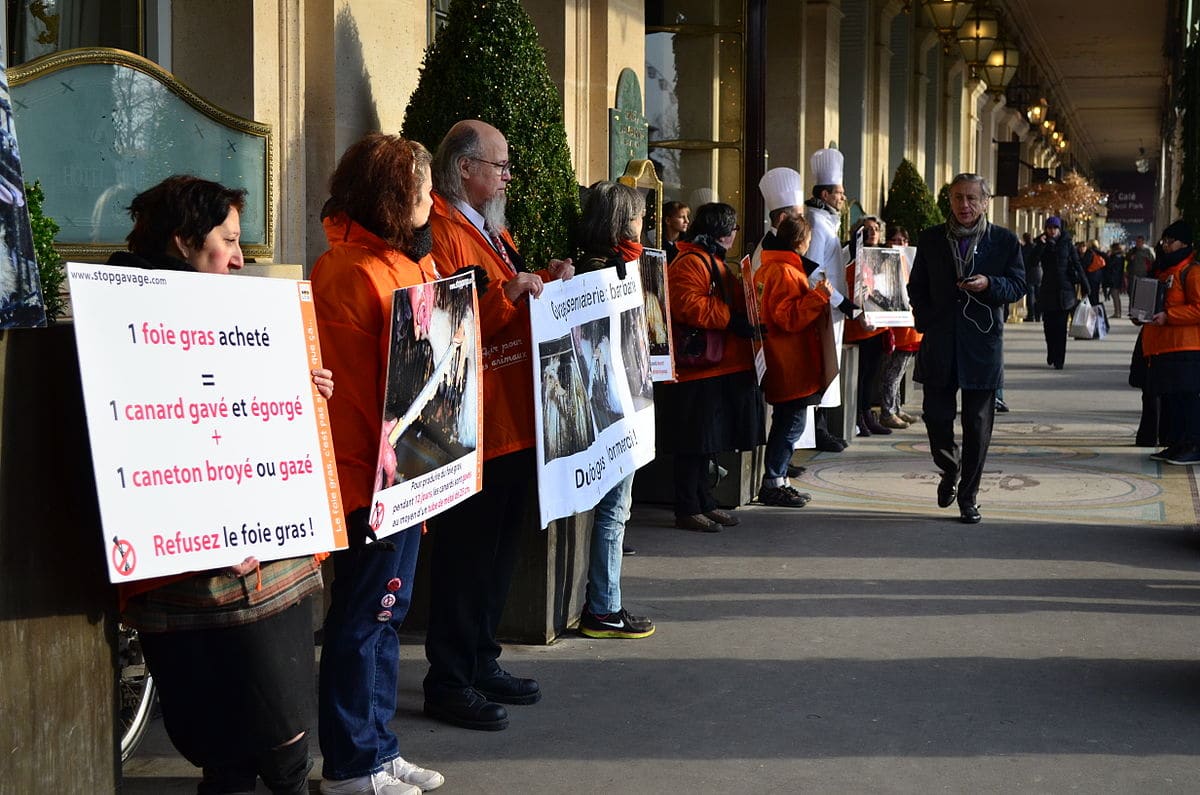
When you think of France there are certain things that spring to mind instantly – wine, great food, the Eiffel Tower and romance. All these are true but after having visited France since my childhood and now having lived here for the past 6 years I can honestly say that the French are slightly obsessed with Foie Gras. You will not find a restaurant menu
for a special occasion that does not include Foie gras at some point. So what is it and why has the subject raised its ugly head again?

The literal translation of Foie Gras is fat liver – yes appetising , I know! It is produced from the fattened livers of either ducks or geese, mainly in the south west of France, and it tastes heavenly! Smooth, rich, creamy, flavoursome – just some of the many adjectives to describe this controversial food. And did I mention expensive? When you think that you can buy ox liver for about 4 euros per kilo,or some exceptional calve’s liver for about 15 euros per kilo, a 500/600g “lobe” of Foie Gras could set you back upto 40 euros! But if you witnessed the way it flies off the supermarket shelves at Christmas time you would know that the French firmly believe it is worth every Euro cent.

There are various forms in which you can purchase Foie Gras. Most chefs will buy a whole liver or “lobe” raw, either fresh or frozen. The liver can need deveining before being incorporated into a dish, which is a slightly fiddly process. It is possible to buy it pre-sliced and ready to use. The other way of buying Foie Gras is in a tin, cooked and ready to eat. This is much cheaper but it can also be argued that the finished product is of inferior quality.
In the majority of cases on restaurant menus you will see Foie Gras described as “mi-cuit” which translates as half cooked. It does sound so much more romantic in the French! But the idea is to heat the liver sufficiently so that it is safe to eat. If you overcook the liver the fat will just dissolve and you are left with something that resembles butter.
Once cooked the foie gras has the texture of a paté or a terrine and, more often than not, served as a starter quite simply with some toasted brioche or with salad leaves and some chutneys, although one of my favourites is to serve a griddled slice of Foie Gras under a fillet steak. When having it as a starter, or an “apero”, drink a nice glass of champagne or try a sweet white wine such as a Muscat de Rivesaltes, which is produced in the region where I live.

The controversial part is in the production and the treatment of the ducks and geese. Foie Gras is produced from male birds that are kept caged and are force fed so as to enlarge their livers. You may have seen pictures of feeding tubes put down the gullets of the birds and feed poured in. Rightly, this method of treating animals has caused an uproar.
A simple internet search will produce some horrifying stories. My job here is to inform and not to get involved in the politics of the argument. There are always two sides and each side will be able to state their case very powerfully. It is up to you, the reader,to decide whether or not you will continue to purchase Foie Gras. There are, however, a number of countries that have banned the import of Foie Gras and it is for this reason that I said the issue has raised its ugly head again.
In the United Kingdom the production of Foie Gras using force feeding was banned under animal welfare laws in 2006 but the UK still imports, mainly from France, about 200kg per year. There is now a call for it to be banned entirely and, as you can imagine, has become a political battle ground. Since the beginning of 2021 Britain is no longer a part of Europe, politically at least, and has claimed sovereignty over its rights to trade freely.
Since New York banned the sale of Foie Gras and associated products there has been an increased call for Britain to follow suit, notably from Prime Minister Boris Johnson’s girlfriend, Carrie Simmons. She is patron of the Conservative Animal Welfare Foundation and is able to use her position to be heard.

Many restaurants have started pulling Foie Gras from their menus because of protests outside their doors from environmental campaigners. There are anecdotes of customers being abused when entering or leaving restaurants, a situation that can only degrade as time goes on. But should a restaurant be forced to withdraw a legally produced and imported product from their menu just because it offends a group of people? Will restaurateurs soon be giving in to the vegetarian or vegan brigade?
The French, as you might expect, have responded in typical Gallic fashion calling a proposed ban “an attack on the freedom of British lovers of foie gras” There are once again tensions between the Uk and France but whatever the French may feel there is a growing trend away from meat products that directly affect animal welfare during their rearing.